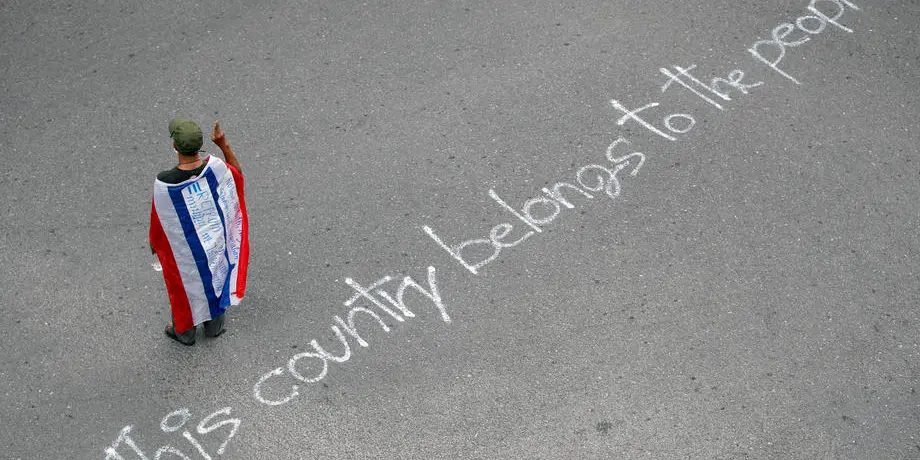
Dramatic spike in threats to Southeast Asian MPs in past year, report finds
December 02, 2021

Lawmakers across Southeast Asia have come under drastically increased threats and harassment in the past year, in-part due to the military coup in Myanmar, but also troubling developments elsewhere in the region, a new report by ASEAN Parliamentarians for Human Rights (APHR) has found.
The number of Members of Parliament (MPs) detained in Southeast Asia has dramatically risen this year, from just one in 2020, to 91 in 2021, APHR found in its new report Parliamentarians at Risk: Reprisals against opposition MPs in Southeast Asia in 2021. This sudden spike was largely due to developments in Myanmar, where the military seized power in a coup in February, however there have also been alarming developments elsewhere in the region, including Thailand, the Philippines, and Malaysia, APHR said. Although not featured in detail in the report, former opposition lawmakers have also been targeted in Cambodia.
“This year has been yet another dark year for human rights in Southeast Asia, and as our region slides deeper into the grasp of authoritarianism, elected lawmakers have been among those heavily targeted, particularly those standing up for basic decency, human rights, and democracy,” said Teddy Baguilat Jr, an APHR Board Member and former Philippines Member of Parliament (MP). “Developments in Myanmar have been particularly troubling, where the political opposition has come under assault by the junta, but there are also concerns elsewhere, with governments utilizing COVID-19 to undermine opposition MPs, and erode the important oversight role they play in a democracy.”
“On top of MPs being locked up merely for fulfilling their mandates as representatives of the people, we have also witnessed threats to lawmakers for doing their jobs, as well as orchestrated campaigns of judicial harassment and disinformation, aimed at both discrediting and silencing them,” Baguilat said.
Amid the ongoing human rights catastrophe in Myanmar, the political opposition, in particular members of the National League for Democracy (NLD), which won the 2020 election in a landslide, has been among the most prominent targets. The junta has suspended all national and sub-national parliaments, and stripped democratically elected MPs of their seats without legal or constitutional justification. At least 90 parliamentarians remain in detention or house arrest, while many others have gone into hiding to avoid the same fate.
“Not content with stealing the result of the 2020 election away from the people, the military junta in Myanmar has sought to justify its power grab by shutting down parliament, declaring groups formed by democratically-elected MPs as ‘illegal’, and jailing almost 100 of those MPs on the most spurious of charges,” said Charles Santiago, APHR Chair and a Malaysian MP. “Over the past year, the Myanmar people have said loud and clear who their representatives are – those they elected in the 2020 election – and all international actors, including ASEAN, must condemn the Myanmar military in the strongest possible terms, call for the release of all those arbitrarily detained since the coup, including MPs, and for the country to be put back on the democratic path.”
While the situation in Myanmar has dominated headlines, lawmakers were also at risk elsewhere in Southeast Asia, notably Malaysia, the Philippines, and Thailand, APHR said.
In Malaysia, in January the government of then-Prime Minister Muhyiddin Yassin used the COVID-19 pandemic as an excuse to impose a state of emergency, while parliament was suspended for more than seven months. Opposition politicians were among those targeted in a growing crackdown on dissent, with at least ten lawmakers interrogated or charged for expressing criticism related to human rights abuses or the suspension of parliament.
In the Philippines, disinformation campaigns, threats and so-called “red-tagging” of opposition lawmakers rose alarmingly ahead of the general elections taking place in 2022, while President Rodrigo Duterte and other senior officials made baseless accusations against left-wing lawmakers, claiming they support an armed communist insurgency. Senator Leila de Lima remains in prison, and has now been arbitrarily detained for close to five years.
Meanwhile, in Thailand, the government and its allies continued to level trumped-up criminal cases against Move Forward Party (MFP) lawmakers, while opposition MPs were also the target of widespread abuse online, often through highly coordinated “information operations” orchestrated by state-affiliated actors.
“An attack on an MP is an attack on democracy. The systematic harassment of MPs – whether online, offline, judicial or otherwise – is clearly aimed at preventing them from doing their jobs, and acting as a check and balance on behalf of the people,” said Baguilat Jr. “The role of MPs is absolutely crucial in a democracy, particularly during the pandemic of the last two years, or as elections approach, as is the case in the Philippines and Cambodia.”
“Amid the assault on democracy we are witnessing across the region, those working to protect it must come together and act as one unified voice. We call on our governments across Southeast Asia to do everything in their power to protect the human rights of all MPs, and urge our fellow parliamentarians to call out the abuses they see at every turn,” Baguilat said.
Click here for a Myanmar translation of this statement
Click here for a Bahasa Indonesian translation of this statement
Click here for a Khmer translation of this statement
Click here for a Lao translation of this statement
Click here for a Malay translation of this statement
Click here for a Thai translation of this statement
ASEAN Parliamentarians for Human Rights (APHR) was founded in June 2013 with the objective of promoting democracy and human rights across Southeast Asia. Our founding members include many of the region's most progressive Members of Parliament (MPs), with a proven track record of human rights advocacy work.